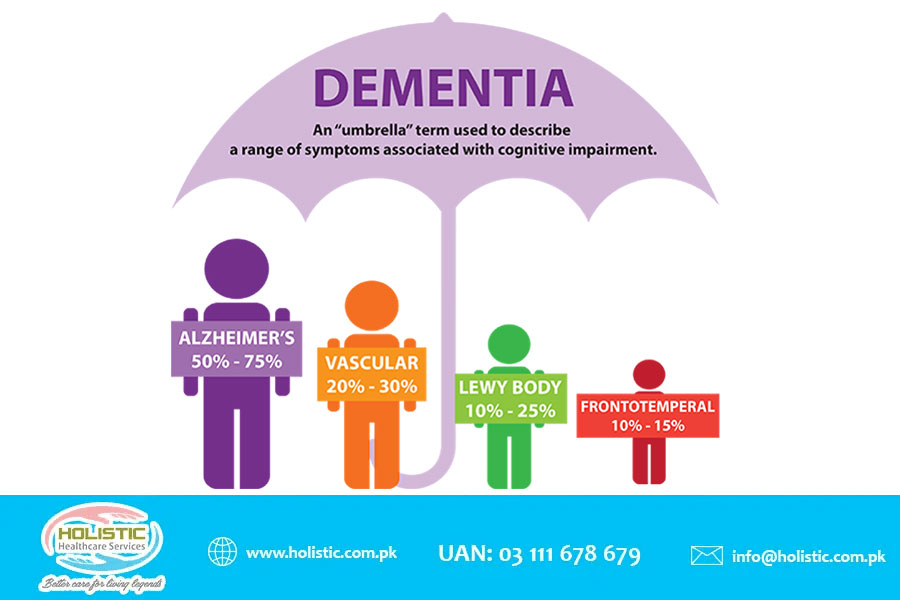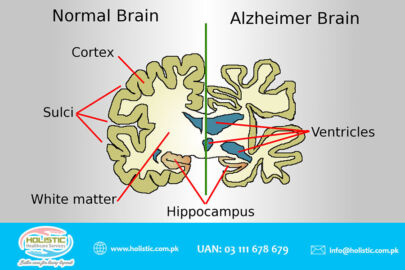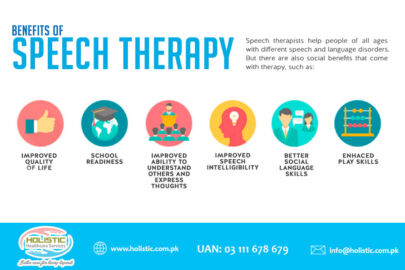Dementia is an overall term for diseases and conditions characterized by a decline in memory, language, problem-solving, and other thinking skills that affect a person’s ability to perform everyday activities. Memory loss is an example. Alzheimer’s is the most common cause of dementia.
Behavioral abilities are affected to such an extent that it interferes with a person’s daily life and activities. Along the spectrum from mildest to the most severe of this condition, patients become dependent on others for the continuation of their daily lives.
It has been found that Dementia is a progressive illness.
Symptoms
It is natural to lose some neurons as you age, people with dementia experience far greater loss much more rapidly.
Common signs and symptoms include acting out one’s dreams in sleep, seeing things that are not there (visual hallucinations), and problems with focus and attention. Other signs include uncoordinated or slow movement, tremors, and rigidity (Parkinsonism).
Types of Dementia
The different types are listed below:
Frontotemporal dementia – Signs and symptoms result when once-healthy neurons (nerve cells) in the brain stop working, lose connections with other brain cells, and die. While everyone loses neurons, such a patient loses them with much more rapidity.
While dementia is more common as people grow older (up to half of all people age 85 or older may have some form of dementia), it is not a normal part of aging. Many people live into their 90s and beyond without showing any signs at all. One type of dementia, called front temporal disorders, is more common in middle-aged than older adults.
Vascular dementia (i.e. loss of brain function due to a series of small strokes).
As mentioned in the introduction, it is a progressive illness, and follows stages in the order given:
- Stage 1: No impairment
- Stage 2: Very mild cognitive decline
- Stage 3: Mild cognitive decline
- Stage 4: Moderate cognitive decline
- Stage 5: Moderately severe
Dementia can take a number of forms, as listed below:
- Alzheimer’s disease
- Frontotemporal disorders
- Lewy body dementia
Other types of progressive brain disease include:
- Vascular contributions to cognitive impairment
- Mixed dementia is a combination of two or more types
Diagnosis
The overlap in symptoms of various dementias can make it hard to get an accurate diagnosis. However, proper diagnosis is important to get the right treatment. Seek help from a neurologist – a doctor who specializes in disorders of the brain and nervous system – or another medical specialist who knows about dementia.
Treatment
A medical assessment generally includes:
- Medical history
- Physical exam
- Neurological tests
Diagnosis
The following procedures may be used to diagnose this condition:
- Cognitive and neuropsychological tests
- Laboratory tests
- Brain scans
Drugs used to cure Dementia
- Donepezil (marketed under the brand name Aricept), which is approved to treat all stages of Alzheimer’s disease
- Galantamine (Razadyne), approved for mild-to-moderate stages
- Rivastigmine (Exelon), approved for mild-to-moderate Alzheimer’s as well
It is quite common for dementia patients to sleep a lot. As the illness increases, the frequency of the patient dozing off increases.
The actual death of a person may be caused by another condition. They are likely to be frail towards the end. Their ability to cope with infection and other physical problems will be impaired due to the progress of dementia. In many cases, death may be hastened by an acute illness such as pneumonia.
Be sure to check the informative articles we have shared on our blog for Parkinson’s Disease (PD) and Systemic Lupus (SLE.) You can also call us directly at 03 111 678 679 to talk to our healthcare professional or get information about the healthcare services we provide in major cities. The tea at Holistic Healthcare Services will be happy to assist.





 Reach us on WhatsApp
Reach us on WhatsApp